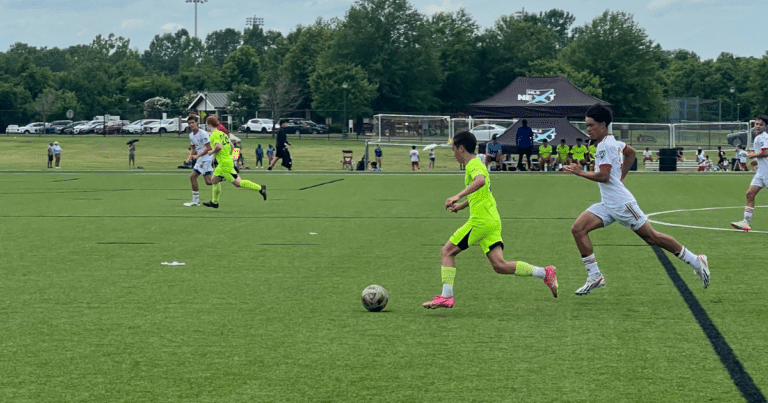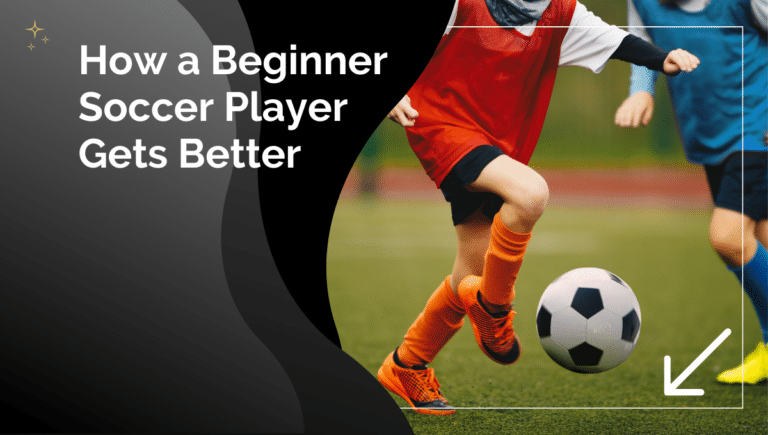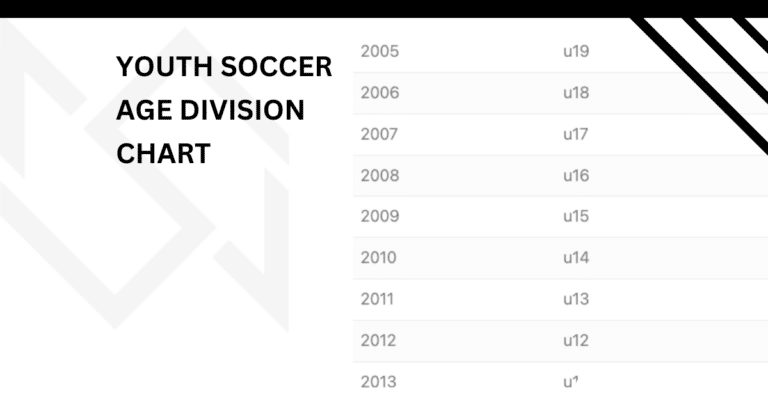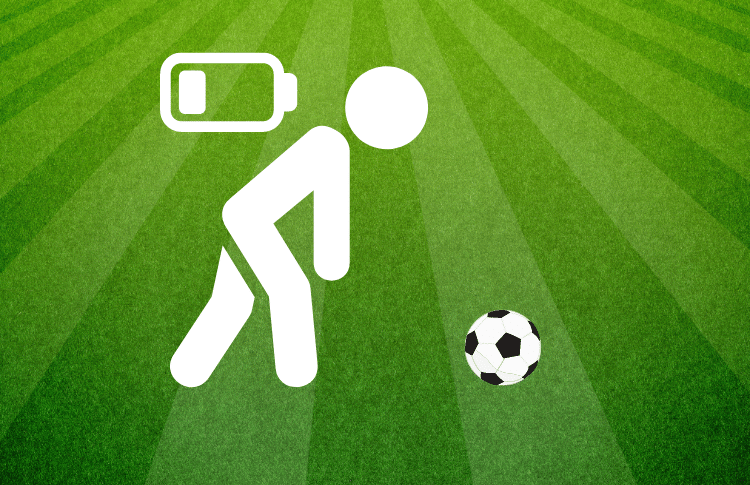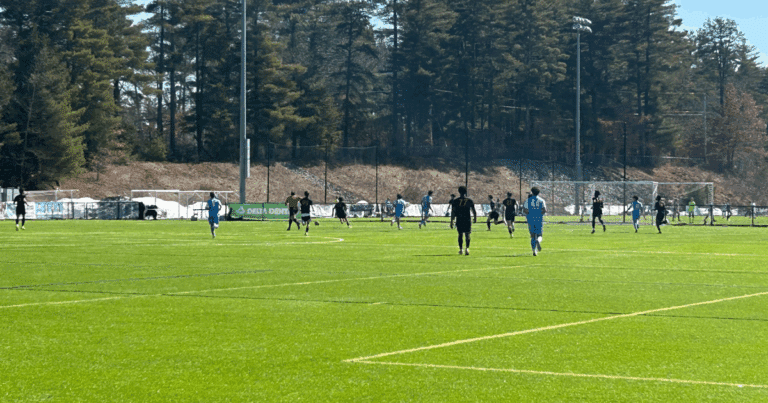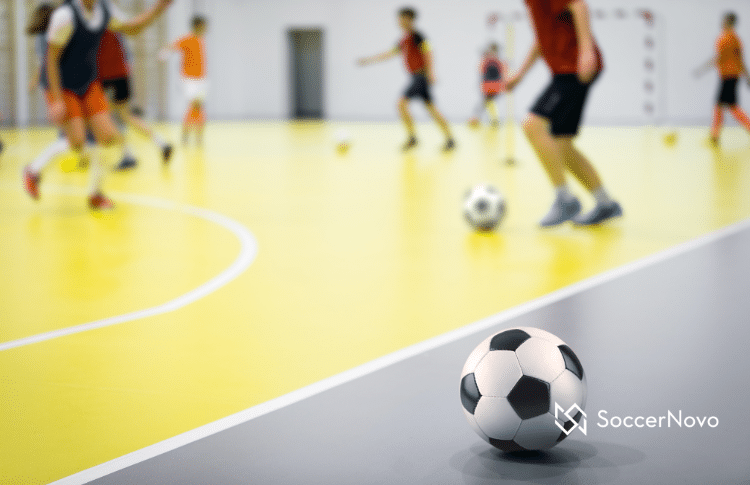Growth Mindset in Sports
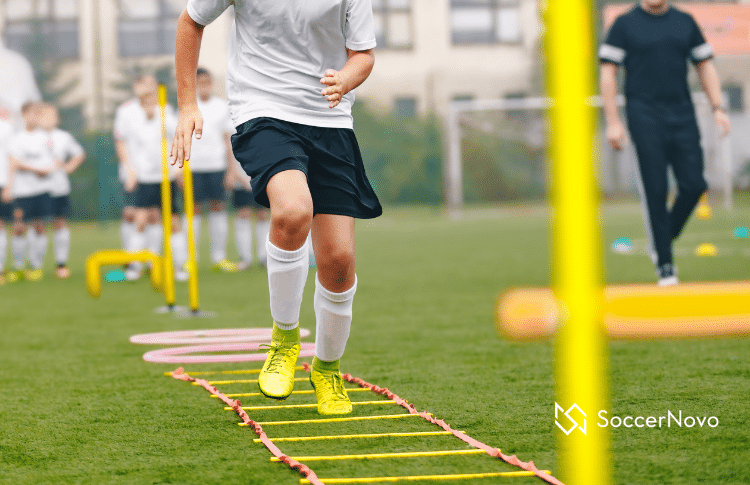
I honestly believe a growth mindset is everything in sports and life. Without the right thinking, very little is possible. With the right mindset, anything is possible.
What is a growth mindset? A growth mindset is a belief that one’s abilities and intelligence can be developed over time through hard work, perseverance, and learning from mistakes. In sports, young athletes with a growth mindset are more likely to work on developing their game, welcome new challenges, and continue to persist even when things don’t go their way.
I’ve seen it time and time again, an exceptional athlete caves under any adversity. On the flip side, I’ve seen mediocre athletes become great through an ‘I can do anything’ mindset.
Whether you’re a college athlete or just starting out, adopting a growth mindset can help you reach your full potential and achieve your goal! Let’s dive into this fun topic some more.
Basics of a Growth Mindset
Having a growth mindset means that you believe your abilities and intelligence can be developed through dedication and hard work. This mindset is especially important in sports, where success often comes from consistent effort and practice, not games.
When you have a growth mindset, you view challenges as opportunities to learn and improve. You embrace failure as a natural part of the learning process and use it as a chance to adjust your approach and try again.
In contrast, a fixed mindset is the belief that your abilities and intelligence are set in stone. People with a fixed mindset tend to avoid challenges, fear failure, and give up easily when faced with obstacles. You are who you are and nothing can change that. Tough way to go about life, isn’t it?
By developing a growth mindset, you can unlock your full potential as an athlete. You’ll be more willing to take risks, push yourself out of your comfort zone, and persist in the face of setbacks.
Here are some key characteristics of a growth mindset:
- Embracing challenges as opportunities for growth
- Viewing failure as a natural part of the learning process
- Believing that your abilities can be developed through hard work and dedication
- Being open to feedback and willing to learn from mistakes
- Persisting in the face of setbacks and obstacles
- Not letting anyone’s opinion hold you back
Growth Mindset in Soccer
When it comes to soccer, having a growth mindset can have a HUGE impact. As a youth soccer player, you should be developing your game every day. Knowing that if you put in the work you’ll get better is a reflection of having a growth mindset.
You will be more likely to take risks and try new things in your training and games. You’ll understand that failure is a natural part of the learning process and are not afraid to make mistakes. This mindset also helps you stay motivated and focused on your goals, even when you’ve lost a few games in a row.
I think one of the key components of a growth mindset in sports is the ability to learn from failure. Instead of getting discouraged by losses or mistakes, athletes with a growth mindset use these experiences as opportunities to improve. They analyze what went wrong, make adjustments, and try again. It’s easier said than done but if you keep at it, it’s going to feel like second nature.
Remember, you were born as you but you have the ability to get better day-by-day. You may not see any changes in a week, month, or three months but you are still getting better incrementally. You’ll see it in a year and be proud that you put in the work to get better.
Developing a Growth Mindset in Athletes
As an athlete, developing a growth mindset is crucial for achieving success in sports. It’s the belief that your abilities can be developed through dedication and hard work, rather than being fixed traits that you’re born with. Here are some effective coaching strategies and athlete self-reflection techniques to help you develop a growth mindset.
Effective Coaching Strategies
I think coaches can play a critical role in empowering a growth mindset in soccer players. Here are some strategies that coaches can use to help their athletes develop a growth mindset:
- Praise effort, not just talent: Praising athletes for their hard work and dedication, rather than just their natural talent, can help them develop a growth mindset. This encourages athletes to focus on improving their skills through practice and hard work.
- Encourage risk-taking: Every soccer player makes mistakes. Encouraging players to take risks and try new things can help them develop a growth mindset. Athletes who are afraid to fail are less likely to take risks and try new things, which can limit their potential.
- Provide constructive feedback: Providing athletes with constructive feedback can help them see their mistakes as opportunities for growth. This helps athletes develop a growth mindset by encouraging them to learn from their mistakes and improve their skills.
- Encourage them to watch motivational videos: Especially for the younger players, watching motivational videos can give them a visual and audio look into what a growth mindset entails. While they are moldable, I think this is very beneficial.
Challenges in Cultivating a Growth Mindset
Here are some challenges you may face when trying to develop a growth mindset:
1. Fear of Failure
One of the biggest challenges in cultivating a growth mindset is overcoming the fear of failure.
Athletes who are afraid of failing may avoid taking risks or trying new things, which can limit their potential for growth.
To overcome this fear, it’s important to reframe failure as an opportunity to learn and improve. Encourage yourself to view mistakes as a natural part of the learning process, and focus on what you can do differently next time.
2. Fixed Mindset Beliefs
Another challenge in cultivating a growth mindset is overcoming fixed mindset beliefs. These beliefs include the idea that talent is innate and cannot be developed, or that success is based solely on natural ability.
To overcome these beliefs, it’s important to focus on the effort and hard work that goes into developing skills and achieving success. Encourage yourself to embrace challenges, persevere through obstacles, and learn from feedback.
3. Negative Self-Talk
Negative self-talk can also be a barrier to developing a growth mindset. When athletes engage in negative self-talk, they may doubt their abilities, become overly critical of themselves, or give up too easily.
Encourage yourself to focus on your strengths, use affirmations to boost your confidence, and replace negative thoughts with positive ones.
4. Lack of Support
Athletes who don’t receive support from coaches, teammates, or family members may struggle to stay motivated and may not have the resources they need to develop their skills.
It’s important to seek out support from others who share your goals and values. Look for mentors, coaches, or teammates who can provide encouragement, feedback, and guidance.
If you don’t have anyone, this is where motivational videos can be a good substitute for the lack of personal support.
Final Thoughts on a Growth Mindset
I’m a huge fan of personal development and building a growth mindset. I think this is one of those muscles that can be developed over time.
As a soccer player, you should work on this every day and it can start in the classroom. For example, instead of taking the shortcut on your homework by asking a parent or Alexa, buckle down and get in the right mindset that you can do it…then attack it.
On the soccer field, have the mindset to get better every day no matter what. Brick-by-brick, day-by-day, the work you put in today will benefit you tomorrow. There’s absolutely no reason why you aren’t getting better. Trust the process and enjoy the moments.
Realize that you can maximize your potential if you have the right mindset. Everything else will fall into place if you put in the hours and focused intensity. I promise.

Written By: SoccerNovo
SoccerNovo is an independent youth soccer media brand built to help parents, players, and coaches better understand the game and the pathways available in U.S. soccer. Our mission is to make youth soccer simpler, clearer, and more accessible for everyone involved in it.
Let’s connect


